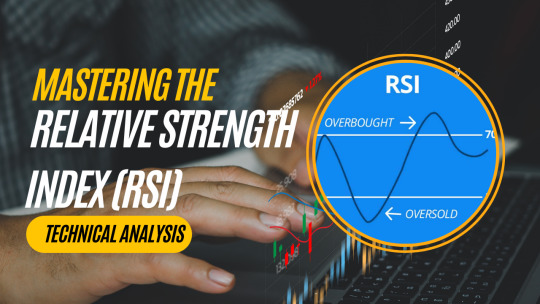#trading courses
Text
ICFM Offers A Wide Array Of Trading Courses

ICFM offers a wide array of Trading Courses that are tailored to help individuals master the art of trading in various financial markets. These courses cover multiple areas, including equity, derivatives, commodities, and forex trading, providing participants with the skills and strategies needed to navigate different market conditions. The curriculum includes topics like technical analysis, fundamental analysis, chart patterns, and advanced trading strategies, ensuring that learners can understand market trends and make profitable trades.
One of the standout features of ICFM’s trading courses is the focus on practical learning, where participants engage in live trading sessions and use real-time data to apply their knowledge. This hands-on approach helps them understand the complexities of the market, develop risk management techniques, and gain confidence in their decision-making abilities. Whether you're a beginner seeking to learn the basics or an experienced trader looking to refine your strategies, ICFM’s trading courses provide comprehensive training to succeed in the highly competitive world of trading.
#Trading courses#Trading courses online#Trading courses in India#Trading courses for beginners#Stock market courses#Best trading courses in India
0 notes
Text
What Are the Benefits of Taking a Trading Course in Delhi?

In the vibrant financial landscape of Delhi, the quest for financial growth and investment opportunities has led many individuals to explore trading in the stock market. However, the complexities and risks associated with trading necessitate a robust educational foundation. The National Institute of Stock Market Courses (NISMC) in Delhi offers specialized trading courses designed to equip individuals with the skills and knowledge needed to excel in the financial markets. This article delves into the numerous benefits of enrolling in a Trading courses in Delhi at NISMC, highlighting how such education can transform your trading career.
1. Thorough Understanding of Financial Markets
One of the primary benefits of taking a trading course at NISMC is acquiring a comprehensive understanding of financial markets. The stock market operates on intricate principles and structures that can be overwhelming without proper guidance.
Market Structure and Functioning: Gain insights into how financial markets operate, including the roles of various participants such as brokers, traders, and regulators. Learn about major stock exchanges like the Bombay Stock Exchange (BSE) and the National Stock Exchange (NSE), and understand the processes involved in trading and settlement.
Financial Instruments: Explore different financial instruments, including stocks, bonds, derivatives, commodities, and mutual funds. Each instrument has its characteristics, risks, and potential returns, which are crucial for making informed trading decisions.
Market Participants: Understand the roles of different market participants, including institutional investors, retail investors, market makers, and regulators. This knowledge helps in understanding market dynamics and the impact of various participants on price movements.
A solid understanding of these concepts lays the foundation for making well-informed trading decisions and navigating the complexities of financial markets effectively.
2. Expert Risk Management Techniques
Risk management is a cornerstone of successful trading. A trading course at NISMC provides essential risk management strategies to help you protect your investments and minimize potential losses.
Risk Assessment: Learn how to assess the risk associated with different trades and investments. Understanding risk factors helps you make informed decisions and avoid high-risk situations.
Stop-Loss and Take-Profit Orders: Gain proficiency in using stop-loss and take-profit orders to automatically exit trades when specific conditions are met, thereby managing risk and locking in profits.
Position Sizing: Understand the principles of position sizing to determine the appropriate amount of capital to allocate to each trade based on your overall portfolio and risk tolerance.
Diversification: Learn how to diversify your investments across different asset classes and sectors to spread risk and reduce the impact of adverse market movements.
Mastering these risk management techniques helps ensure that your trading activities are balanced and that your capital is safeguarded against significant losses.
3. Advanced Technical Analysis Skills
Technical analysis is a vital skill for traders who focus on short-term price movements and trends. NISMC’s trading courses provide in-depth training in technical analysis.
Chart Patterns: Learn to recognize various chart patterns such as head and shoulders, double tops and bottoms, and flags. These patterns can provide insights into potential price movements and trends.
Technical Indicators: Gain expertise in using technical indicators like Moving Averages (MA), Relative Strength Index (RSI), Moving Average Convergence Divergence (MACD), and Bollinger Bands. These indicators help in analyzing market trends, momentum, and volatility.
Trend Analysis: Understand how to identify and analyze market trends, including uptrends, downtrends, and sideways movements. Learn strategies for trading with the trend and identifying potential reversals.
By developing advanced technical analysis skills, you can make informed decisions based on price data and market trends, enhancing your ability to execute successful trades.
4. In-Depth Fundamental Analysis
Fundamental analysis involves evaluating the intrinsic value of a company based on financial and economic factors. NISMC’s courses offer comprehensive training in fundamental analysis.
Financial Statements: Learn how to interpret key financial statements, including the balance sheet, income statement, and cash flow statement. These statements provide insights into a company’s financial health and performance.
Valuation Metrics: Study various valuation metrics such as Price-to-Earnings (P/E) ratio, Price-to-Book (P/B) ratio, and Dividend Yield to assess whether a stock is undervalued or overvalued.
Economic Indicators: Understand how macroeconomic factors, such as inflation rates, interest rates, and GDP growth, influence stock prices and market conditions.
Industry and Sector Analysis: Explore how to analyze industry and sector trends to make informed investment decisions based on the broader economic environment.
Proficiency in fundamental analysis enables you to select stocks and investments based on their intrinsic value and long-term potential, supporting informed decision-making.
5. Practical Experience and Hands-On Learning
One of the most significant advantages of taking a trading course at NISMC is the practical experience and hands-on learning opportunities provided.
Live Trading Simulations: Participate in simulated trading environments where you can apply theoretical knowledge to real-time scenarios. This hands-on practice helps you gain confidence and experience without risking actual money.
Trading Platforms: Gain familiarity with various trading platforms and tools used in the industry, enhancing your ability to execute trades efficiently and effectively.
Case Studies: Analyze real-world case studies to understand how trading strategies are applied in different market conditions and scenarios.
Practical experience bridges the gap between theoretical concepts and real-world application, helping you develop the skills necessary for successful trading.
6. Personalized Instruction and Expert Mentorship
NISMC provides personalized instruction and mentorship, which are crucial for effective learning and career development.
Experienced Instructors: Learn from industry experts with extensive experience in trading and financial markets. Their insights and real-world knowledge offer valuable perspectives and guidance.
Customized Feedback: Receive individualized feedback on your trading strategies and decisions, helping you identify strengths and areas for improvement.
Career Guidance: Benefit from career advice and support from instructors and mentors, including tips on job opportunities, certifications, and professional development.
Personalized instruction and mentorship ensure that you receive tailored guidance and support, enhancing your learning experience and career prospects.
7. Development of Discipline and Emotional Control
Successful trading requires discipline and emotional control. A structured trading course helps you develop these essential traits.
Trading Plan: Learn how to create and follow a well-defined trading plan that outlines your strategies, goals, and risk management rules. A disciplined approach helps you stay focused and avoid impulsive decisions.
Emotional Control: Develop techniques to manage emotions such as fear and greed, which can impact trading decisions and lead to poor outcomes.
Patience and Consistency: Cultivate the patience and consistency required to adhere to your trading plan and execute strategies effectively over time.
Enhancing your discipline and emotional control improves your ability to make rational decisions and maintain a consistent trading approach.
8. Customization Based on Individual Goals
NISMC offers a range of courses tailored to different trading styles and objectives, allowing you to focus on areas that align with your personal goals.
Day Trading: For those interested in short-term trading, specialized courses cover day trading techniques and strategies for capitalizing on intraday price movements.
Swing Trading: Courses on swing trading focus on medium-term trading strategies, teaching you how to capture price movements over several days or weeks.
Long-Term Investing: Long-term investing courses emphasize fundamental analysis and value investing strategies for building a robust investment portfolio.
Algorithmic Trading: Advanced courses in algorithmic trading teach you how to develop and implement trading algorithms for automated trading strategies.
By choosing a course that matches your trading style and objectives, you can tailor your learning experience to meet your specific needs.
9. Networking Opportunities
Enrolling in a trading course at NISMC provides valuable networking opportunities within the financial industry.
Industry Events: Participate in workshops, seminars, and guest lectures featuring industry experts. These events offer opportunities to learn from professionals and connect with peers.
Peer Interactions: Engage with fellow students who share your interests and goals, fostering connections that can lead to collaborations or job opportunities.
Professional Connections: Build relationships with instructors and industry professionals who can provide career advice and support.
Networking enhances your learning experience and opens doors to new opportunities and insights in the financial sector.
10. Career Advancement and Professional Development
Completing a trading course from NISMC can significantly enhance your career prospects and professional development in the financial industry.
Certification: Obtain certification upon course completion, which adds credibility to your resume and demonstrates your commitment to professional growth.
Job Placement Assistance: Benefit from job placement services that connect you with potential employers and job opportunities in trading and finance.
Industry Recognition: Gain recognition from a reputable institution, which can enhance your profile and increase your chances of securing desirable positions.
A well-regarded certification and career assistance can boost your chances of landing a job and advancing in the competitive field of finance.
Conclusion
Enrolling in a trading course in Delhi, particularly at the National Institute of Stock Market Courses (NISMC), offers a multitude of benefits that can significantly impact your trading career. From gaining a thorough understanding of financial markets and mastering risk management to developing technical and fundamental analysis skills, obtaining practical experience, and receiving expert mentorship, the advantages are substantial. Additionally, the opportunity to enhance your discipline, tailor your learning experience, network with industry professionals, and advance your career further underscores the value of investing in a structured trading course. With the right education and training, you can confidently navigate the complexities of the stock market and work towards achieving your financial goals.
0 notes
Text
Stock Trading Courses: Practical Skills for Real-World Success
Stock trading courses are essential for beginners looking to gain practical skills for real-world success in the forex trading market. These courses provide a solid foundation for understanding the complexities of the stock market, as well as developing key skills necessary for making informed trading decisions.
Technical Analysis: A Fundamental Skill for Traders
One of the fundamental skills taught in stock trading courses is technical analysis. This involves examining historical price data and using various indicators to predict future price movements. By learning how to analyze charts and patterns, traders can make more informed decisions on when to buy or sell stocks. Technical analysis also helps traders identify potential entry and exit points, as well as setting stop-loss orders to minimize losses.
Fundamental Analysis: Understanding the Intrinsic Value of Stocks
Another important skill taught in stock trading courses is fundamental analysis. This involves analyzing the financial health of companies, industries, and economies to determine the intrinsic value of a stock. By understanding key financial metrics, economic trends, and market conditions, traders can make better investment decisions based on the underlying fundamentals of a stock. Fundamental analysis also helps traders identify undervalued or overvalued stocks, as well as potential growth opportunities.
Risk Management: Protecting Your Capital
Risk management is another key aspect of stock trading courses. It is crucial for traders to understand how to manage risk by setting appropriate stop-loss orders, diversifying their portfolios, and managing position sizes. By learning how to control risk, traders can protect their capital and minimize potential losses in volatile market conditions. Risk management also involves understanding leverage, margin requirements, and trading psychology to make sound decisions under pressure.

Additional Key Topics in Stock Trading Courses
Stock trading courses also cover important topics such as trading strategies, market psychology, and trading platforms. By learning different trading strategies like day trading, swing trading, and position trading, traders can develop a personalized approach that suits their risk tolerance and investment goals. Understanding market psychology can help traders make better decisions based on market sentiment, crowd behavior, and emotional biases. Learning how to use trading platforms effectively can also enhance traders' ability to execute trades quickly and efficiently.
Achieving Real-World Success in Forex Trading
Overall, stock trading courses provide beginners with practical skills and knowledge to navigate the complexities of the forex trading market. By learning technical and fundamental analysis, risk management, trading strategies, market psychology, and trading platforms, traders can increase their chances of success and achieve their financial goals. Whether you are a novice trader looking to get started or an experienced trader looking to sharpen your skills, stock trading courses are essential for achieving real-world success in the competitive forex trading market.
1 note
·
View note
Text
What is Intraday Trading- Meaning and Basic of Day Trading
Intraday trading, also known as day trading, refers to the practice of buying and selling financial instruments, such as stocks, within the same trading day. This means that all positions are closed before the market closes, and no trades are held overnight. The primary goal of intraday trading is to capitalize on short-term price movements in the market.
Basic Concepts of Intraday Trading
1. Key Features
No Overnight Positions: Unlike long-term investors, intraday traders do not hold any positions overnight. They enter and exit trades within the same day to avoid the risk associated with overnight market movements.
High Frequency of Trades: Intraday trading often involves a high number of trades in a single day, as traders aim to take advantage of even small price movements.
Use of Leverage: Many intraday traders use leverage to increase their buying power. While this can amplify profits, it also increases the potential for losses.
2. Market Hours
Intraday trading is conducted during regular market hours, which typically run from 9:15 AM to 3:30 PM (IST) in India. The first hour and the last hour of the trading session are usually the most volatile and provide significant trading opportunities.
3. Tools and Techniques
Technical Analysis: Intraday traders heavily rely on technical analysis to make trading decisions. This involves analyzing price charts, patterns, and technical indicators to predict future price movements.
Price Patterns: Common patterns like head and shoulders, double tops/bottoms, and triangles are used to identify potential entry and exit points.
Volume Analysis: Volume is a crucial factor in intraday trading, as it helps confirm the strength of a price movement. High volume typically indicates strong market sentiment.
4. Types of Orders
Market Order: A market order is executed immediately at the current market price. It ensures that the trade is completed quickly but doesn’t guarantee the price at which the trade will be executed.
Limit Order: A limit order specifies the price at which you want to buy or sell a stock. The trade will only be executed if the market reaches your specified price.
Stop-Loss Order: A stop-loss order is used to limit potential losses by automatically selling a stock when it reaches a certain price.
5. Strategies in Intraday Trading
Scalping: This strategy involves making numerous trades to capture small price movements. Scalpers aim for small profits on each trade but make many trades throughout the day.
Momentum Trading: Traders buy stocks that are moving strongly in one direction, often due to news or strong market sentiment, and aim to sell them before the momentum fades.
Breakout Trading: This strategy focuses on stocks that break through significant price levels, such as support or resistance levels, with the expectation that the price will continue in that direction.
Advantages of Intraday Trading
Potential for Quick Profits: The high volatility and frequent price movements in intraday trading provide opportunities to make quick profits.
No Overnight Risk: By closing all positions before the market closes, intraday traders avoid the risk of adverse overnight news or events that could impact the market.
Disadvantages of Intraday Trading
High Risk: The potential for quick profits comes with high risk, especially when using leverage. Prices can move against you quickly, leading to significant losses.
Requires Constant Monitoring: Intraday trading requires constant attention and quick decision-making, which can be stressful and time-consuming.
Who Should Consider Intraday Trading?
Intraday trading is suitable for individuals who:
Have a deep understanding of the market and technical analysis.
Are comfortable with taking on higher risks for the potential of quick profits.
Can dedicate time to monitor the market throughout the trading day.
Possess the discipline to stick to a trading plan and manage emotions effectively.
Conclusion
Intraday trading can be a lucrative but challenging activity. It requires a solid understanding of market dynamics, share market technical analysis and strict risk management. While it offers the potential for quick profits, it also carries significant risks, making it essential for traders to approach it with caution and a well-thought-out strategy.
#stock trading courses#intraday trading course india#stock market courses#learn share market india#best stock market trainer#stock market institute#trading courses#trading institute in india#share market classes
0 notes
Text
Mastering the Mind Game: The Psychology of Trading

Step into the high-stakes world of trading, where mastering the mind game is essential. Explore the intricate psychology behind successful trading and learn how to harness your mind's power to outsmart the market. Trading isn't just about buying and selling - it's about controlling emotions, making quick decisions, and staying focused amidst chaos. Delve into the psychology of trading to unlock tools for navigating the market confidently. So, adventurer, buckle up and conquer trading with your mind as your most valuable asset.
In the article, We will explore most of the biggest points of being a successful trader
Understanding the emotional rollercoaster of trading
Recognizing and overcoming biases in decision-making
Developing a resilient mindset to handle market fluctuations
Utilizing cognitive strategies to improve trading performance
Leveraging mindfulness techniques for better trading outcomes
Understanding the emotional rollercoaster of trading
Trading can be a thrilling experience, but it can also be a rollercoaster of emotions. The highs of making a profitable trade can be euphoric, while the lows of a losing trade can be devastating. Understanding the emotional rollercoaster of trading is crucial for mastering the mind game of the market.
One of the key emotions that traders often experience is fear. The fear of losing money can cause traders to hesitate, second-guess their decisions, and ultimately miss out on profitable opportunities.
Conversely, the fear of missing out (FOMO) can lead traders to make impulsive and irrational decisions, chasing after trends without proper analysis. Overcoming fear is essential for successful trading, as it can cloud judgment and lead to poor decision-making.
Another common emotion in trading is greed. The desire to make a quick profit can tempt traders to take on excessive risk, over-leverage their positions, and ignore risk management principles.
Greed can blind traders to potential risks and cause them to ignore warning signs in the market. Learning to control greed and stick to a well-thought-out trading plan is essential for long-term success in the market.
Four Candles Formula Masterclass

On the other end of the spectrum, traders also experience feelings of doubt and self-doubt. After a string of losing trades, it's easy for traders to question their abilities, second-guess their strategies, and lose confidence in their trading skills.
Overcoming self-doubt requires resilience, perseverance, and a willingness to learn from mistakes. It's important to remember that trading is a continuous learning and improvement journey, and setbacks are just part of the process.
Patience is another crucial emotion in trading. The market sometimes moves differently than we expect, and sometimes trades take longer to play out than anticipated. Impatience can lead traders to exit profitable positions too soon or hold on to losing positions for too long.
Cultivating patience is essential for successful trading, as it allows traders to stay calm, focused, and disciplined in the face of market fluctuations.
Finally, traders often experience feelings of regret and guilt after making a bad trade. It's natural to feel disappointed after a losing trade, but dwelling on past mistakes can prevent traders from moving forward and learning from their experiences.
Instead of beating yourself up over a bad trade, it's important to analyze what went wrong, learn from the mistake, and use it as a valuable learning opportunity for future trades.
Recognizing and overcoming biases in decision-making
In the world of trading, split-second decisions can shape your success. Yet, the impact of personal biases often goes unnoticed. Recognizing and addressing biases is vital in mastering trading's mental game.
Overconfidence is a common pitfall. Believing in infallible predictions can lead to reckless choices. Admitting uncertainty and maintaining humility can prevent hasty decisions.
Confirmation bias, favoring information that aligns with our beliefs, threatens sound judgment. Embracing diverse perspectives and challenging assumptions guards against this bias.
Fear and greed wield significant influence. Impulsive decisions driven by the fear of missing out or greed for higher gains can be detrimental. Managing these emotions promotes logic-driven choices.
Loss aversion prioritizes avoiding losses over maximizing gains, hindering growth opportunities. Shifting focus towards potential gains enables more calculated decisions.
Anchoring bias, fixating on initial information, distorts decision-making. Embracing diverse data sources and avoiding fixation fosters more informed choices.
Developing a resilient mindset to handle market fluctuations
In the world of trading, market fluctuations are common, akin to the changing tides of the ocean. To navigate these uncertainties confidently, resilience is crucial. Thriving in trading requires mental strength to withstand its highs and lows, making calmness and clarity essential.
A resilient mindset involves detachment from trade outcomes. Emotions, whether excitement or disappointment, shouldn't cloud judgment. Each trade is part of a larger journey; objectivity is key for rational decision-making.
Failure is a learning opportunity in trading. Rather than seeing losses as defeats, they should be embraced as chances for growth. Viewing setbacks positively helps refine strategies and decision-making skills.
Maintaining perspective and balance is vital. While trading can be rewarding, it's just one facet of life. A healthy work-life balance ensures resilience, preventing burnout and allowing adaptation to market changes.
10 MIN/DAY” 6-FIGURE

Utilizing cognitive strategies to improve trading performance
When it comes to trading, mastering the psychological game is key to success. Understanding cognitive strategies is crucial for improving performance. Mindfulness, being fully present in the moment, helps traders make rational decisions by understanding their emotions. Visualization, creating mental images of success, boosts confidence and belief in abilities, leading to better trades.
Developing a growth mindset, believing abilities can be developed through effort, is vital for persevering through challenges. Emotional regulation is key to preventing fear and greed from clouding judgment, leading to disciplined choices. Building resilience helps traders bounce back from setbacks, staying focused on their goals amidst market fluctuations.
Setting clear goals and establishing a trading plan keeps traders focused and avoids impulsive decisions. Maintaining a positive attitude fosters motivation, resilience, and optimism, ultimately enhancing trading performance. By mastering these cognitive strategies and maintaining the right mindset, traders can navigate the market successfully and achieve better results.
Leveraging mindfulness techniques for better trading outcomes
In the fast-paced world of trading, success hinges not only on strategy and market knowledge but also on mastering the mind game. Incorporating mindfulness techniques into your routine can significantly enhance trading outcomes. Mindfulness involves being fully present without judgment, fostering clarity and calmness essential for decision-making amidst market volatility.
Staying calm and focused amidst uncertainty is crucial in trading. Mindfulness practices like deep breathing, meditation, and visualization help cultivate mental resilience and clarity, enabling traders to navigate market fluctuations effectively. Meditation, in particular, promotes inner peace and conscious decision-making by heightening awareness of thoughts and emotions.
Visualization is another powerful mindfulness tool for traders, providing a mental roadmap for achieving trading goals. By visualizing success and maintaining focus on desired outcomes, traders can stay motivated and resilient in the face of challenges. Mindfulness practices also enhance self-awareness, enabling traders to identify and mitigate biases that may influence decision-making.
Incorporating mindfulness into trading routines fosters greater control and rationality, improving overall decision-making and increasing the likelihood of success in the market. Simple practices like meditation and visualization offer tangible benefits, empowering traders to master the mind game and elevate their trading prowess. Embracing mindfulness is a pathway to heightened trading performance and personal growth.
In conclusion,
mastering the mind game of trading demands self-awareness, discipline, and resilience. By integrating mindfulness techniques into trading strategies, traders can navigate market dynamics with confidence and composure. Embarking on this journey of self-discovery and mastery empowers traders to reach new heights of success and fulfillment in the dynamic realm of trading.
#The Psychology of Trading#Four Candles Formula#Psychology Of Trading#Trading Steenbarger#Trading Courses#Crypto Tutorial#digital marketing#make money online#crypto#software
0 notes
Text
Elevate Your Trading Skills with TradersHub! Best Online Trading Courses and Tools in the USA
Embark on a journey to success with TradersHub! Explore top-notch online trading courses and premier trading education in the USA. Unlock the potential of your investments with our cutting-edge trading tools and feature-rich platform. Whether you're a beginner or an advanced trader, our innovative approach caters to all. Start your risk-free 7-day trial today
Discover a wealth of materials, books, podcasts, and videos all in one place. Our alerts, resources, and market news shape understanding and guide your trading decisions. Join us for personalized 1-to-1 meetings and find the best subscription options for traders. Check out our pricing plans for trading courses and services. TradersHub – Your Gateway to Trading Excellence!
0 notes
Text
Explore the best stock trading courses and premier trading education in USA at TradersHub. Elevate your trading skills with our innovative approach. Start your journey to success today with our comprehensive online trading courses.
#trading courses#trading courses online#trading courses in usa#stock trading education#best stock trading courses online#best trading courses online#best trading education#trading education websites#trading courses near me#online trading tools#Trading Platform in usa#Financial Markets#trading courses for beginners#Advanced trading courses#best price action trading course#best indicator for option trading buy and sell#Trading pricing plans in USA#best Subscription options for traders#Pricing for trading courses#Trading services cost
1 note
·
View note
Text
ICFM offers comprehensive trading courses

ICFM (Institute of Career in Financial Market) offers comprehensive trading courses designed to equip individuals with the skills and knowledge necessary to navigate the complex world of financial markets. These courses are tailored for beginners as well as seasoned traders who want to enhance their strategies and performance in the stock market. ICFM’s trading courses cover a wide range of topics, including equity trading, derivatives trading, currency trading, and commodity trading, ensuring that learners gain a well-rounded understanding of different market segments. The curriculum is structured to provide both theoretical knowledge and practical exposure. Students are taught key trading concepts such as market analysis, technical analysis, and fundamental analysis, alongside trading psychology, risk management, and portfolio management. They also learn how to use advanced trading tools, platforms, and software that are crucial for executing trades efficiently in live markets. What sets ICFM apart is its focus on hands-on learning. The courses include live trading sessions where participants can trade in real-time markets under the supervision of expert traders. This practical exposure allows students to apply what they have learned in a controlled environment, helping them to better understand market dynamics and improve their decision-making skills. Additionally, ICFM offers flexible learning options, including online and classroom-based training, to suit the schedules of working professionals, students, and part-time traders. The institute’s faculty comprises industry experts with years of experience in financial markets, ensuring that students receive high-quality instruction and mentorship. The courses also include mock trading sessions, market simulations, and regular assessments to track progress and ensure thorough understanding. Overall, ICFM’s trading courses are ideal for individuals looking to build a solid foundation in trading, develop effective strategies, and gain the confidence needed to succeed in the stock market. Whether you are aiming to become a full-time trader or simply want to enhance your market knowledge, ICFM’s comprehensive courses offer the tools and resources to help you achieve your financial goals.
#Trading courses#Trading courses online#Trading courses in India#Trading courses for beginners#Stock market courses#Best trading courses in India
0 notes
Text
Mastering the Relative Strength Index (RSI): A Comprehensive Guide to Trading Success
This post will provide readers with a comprehensive understanding of the Relative Strength Index (RSI) and equip them with the knowledge and skills needed to utilize RSI effectively in various trading scenarios.
It covers the basics, interpretation, trading strategies, advanced techniques, and common pitfalls associated with RSI. Real-life case studies and examples will help readers grasp the…

View On WordPress
#Algorithmic Trading#Financial Education#Financial Markets#Investment Advice#Investment Strategies#Market Analysis#Market Trends#relative strength index#Risk Management#RSI#technical analysis#Technical Indicators#Trading Books#Trading Courses#Trading Education#Trading Psychology#Trading Resources#Trading Strategies#trading tools
0 notes
Text
CFA Coaching in Indore | Maheshwari Institute of Careers & Research
If you are looking for the best cfa coaching in Indore, look no further. Maheshwari Institute of Careers & Research is your best bet. In addition, you can master the technical analysis course in depth. For more details, please contact 9644411558 or 9826062744.
#cfa coaching in indore#cfa coaching#financial modelling course in indore#financial modelling certification#financial modelling course#technical analysis course#trading courses#trading classes in indore#future and option trading course#learn futures and options#learn future and options trading#advanced option strategies#stock market coaching in indore#stock market training institute in indore#stock market institute in indore#share market coaching in indore#stock market classes in indore#share market course in indore#share market classes in indore#stock market trading courses#share market trading course#stock market courses for beginners#stock market institute#stock market classes#share trading course#stock market training#share market classes#share market training#share marketing course#stock market course
0 notes
Text
Top Trending Certification Programmes in India

Top Trending Certification Programmes in India With a High Salary in 2023. The Online certificate programs in India offer a flexible schedule and current course materials. The lower costs, the ability to learn at your own speed, and the chance to advance without leaving your existing position, and acquire new skills.
0 notes
Text




raison d’etre + sushi = profit
#p5#persona 5#persona 5 royal#yusuke kitagawa#persona 5 yusuke#p5 akechi#akechi goro#goro akechi#kitagoro#akekita#my first p5 art i posted online!#for a p5 based art trade with my good friend uhenishi on twitter:3#IF UOU SEE THIS UHE HIIIII FROWS UP#SORRY IF THE DIALOGUE IS CHEESY OR MY CHARACTERIZATION IS OFF I TRIED MY BEST AND THIS IS MY PERSONAL INTERPRETATION OF THEM:3#they should have interacted more they haved a lot in common Tch… watever…..#of course they would have a deep talk at a sushi conveyor belt place. yusuke’s broke
7K notes
·
View notes
Text
Learn Stock Market Trading
Make money regularly from the stock market.
Stock Market Mentorship
Learn stock market trading directly from expert traders. From stock market basics to advanced trading strategies, choose from a wide variety of mentorship programmes to fit your goals.
Read more about Learn Stock Market Trading on Marketfeed.com.
#online stock trading courses#stockmarket courses#stock market#tradingstock market#trading courses#stock trading courses#sharique samsudheen#learn how to trade in marketsinvest in stocks
1 note
·
View note
Text
Something about Snape, 31-38, with pure black hair, not a single sign of white, despite that being the age most people start going grey
Something about how he had the full dark hair of youth and died like that
Something about how he never truly grew up like he should have
Something about how he was always stuck there in the past, stuck as that Snape boy from Spinner's End, stuck as Snivellus the boy who the Marauders hated for just existing
Something about how he died there in the same place he nearly died as a boy
Something about how he died in that place, bloodied and wounded, raven black hair, no difference between him and his boyhood self
Something about how that black hair was perhaps a sign that he was still living in the past, that a piece of him was eternally frozen at 21, at 16, at 15, he died a man yet he wasn't one, he wasn't a boy but not quite a man
Something about how his portrait among all the other heads of Hogwarts is the only one whose hair is fully dark, whose face isn't lined with age.
Next to them, he is a boy. Perhaps he always was.
#severus snape#pro snape#professor severus snape#like i know it wouldn't have been intentional at all but the fact that the character who is so tied with his past never had greying hair-#-just seems like symbolism to me#he wasn't a child of course but was he truly completely grown up?#sometimes the barbs he trades with the school children makes me feel like he is on their level at times#that he never managed to mature properly
345 notes
·
View notes
Text
Journey to Success: Navigating the Trading Seas with Wisdom and Strategy

In the dynamic world of trading, where every decision is a wave in the vast sea of financial markets, success is not just a destination; it's a journey. Traders enter this realm with dreams of financial independence and prosperity, and the path to success demands a blend of knowledge, strategy, and unwavering discipline.
Setting Sail with Market Dynamics :- To navigate the trading seas, aspiring traders must first understand the ebb and flow of market dynamics. From the fundamental forces of supply and demand to the nuanced dance of market trends and indicators, a solid foundation in market dynamics is the compass that points traders in the right direction.
Charting Success with a Trading Plan :- Crafting a robust trading plan is akin to charting a course through unpredictable waters. This plan, a comprehensive roadmap, encompasses crucial elements like risk management, profit targets, and a clear strategy. It becomes the guiding star that helps traders navigate the inevitable highs and lows of the market.
Choosing Your Trading Vessel :- Trading is a personal journey, and choosing the right vessel is key. Whether you're drawn to the speed of scalping, the daily adventures of day trading, or the more measured pace of swing trading, selecting a trading style that aligns with your goals and lifestyle is paramount to a successful voyage.
Navigating the Technical Waters :- Successful traders master the technical aspects of the trade. Technical analysis, the compass that helps predict future market movements, involves studying price charts and utilizing various tools. A trader well-versed in technical analysis can confidently navigate the often turbulent waters of the financial markets.
Risk Management as Your North Star :- Mitigating risk is the North Star that guides traders through uncertain seas. Implementing effective risk management strategies, such as setting stop-loss orders and diversifying portfolios, ensures that traders weather the storms without facing significant financial setbacks.
A Journey of Continuous Learning :- In the ever-evolving landscape of financial markets, successful traders adopt a mindset of continuous learning. Staying informed about market news, exploring new strategies, and adapting to changing conditions are the hallmarks of traders who thrive in the long run.
Embarking on the trading odyssey is an invitation to a journey that involves a delicate balance of knowledge, strategy, and adaptability. The allure lies not just in the potential for financial success but in the thrill of navigating the intricate seas of trading. So, set sail with confidence, embrace the challenges, and let the trading odyssey become your unique journey of discovery. Explore more at Tradershub.Ninja.
#trading courses#trading courses online#trading courses in usa#stock trading education#best stock trading courses online
0 notes